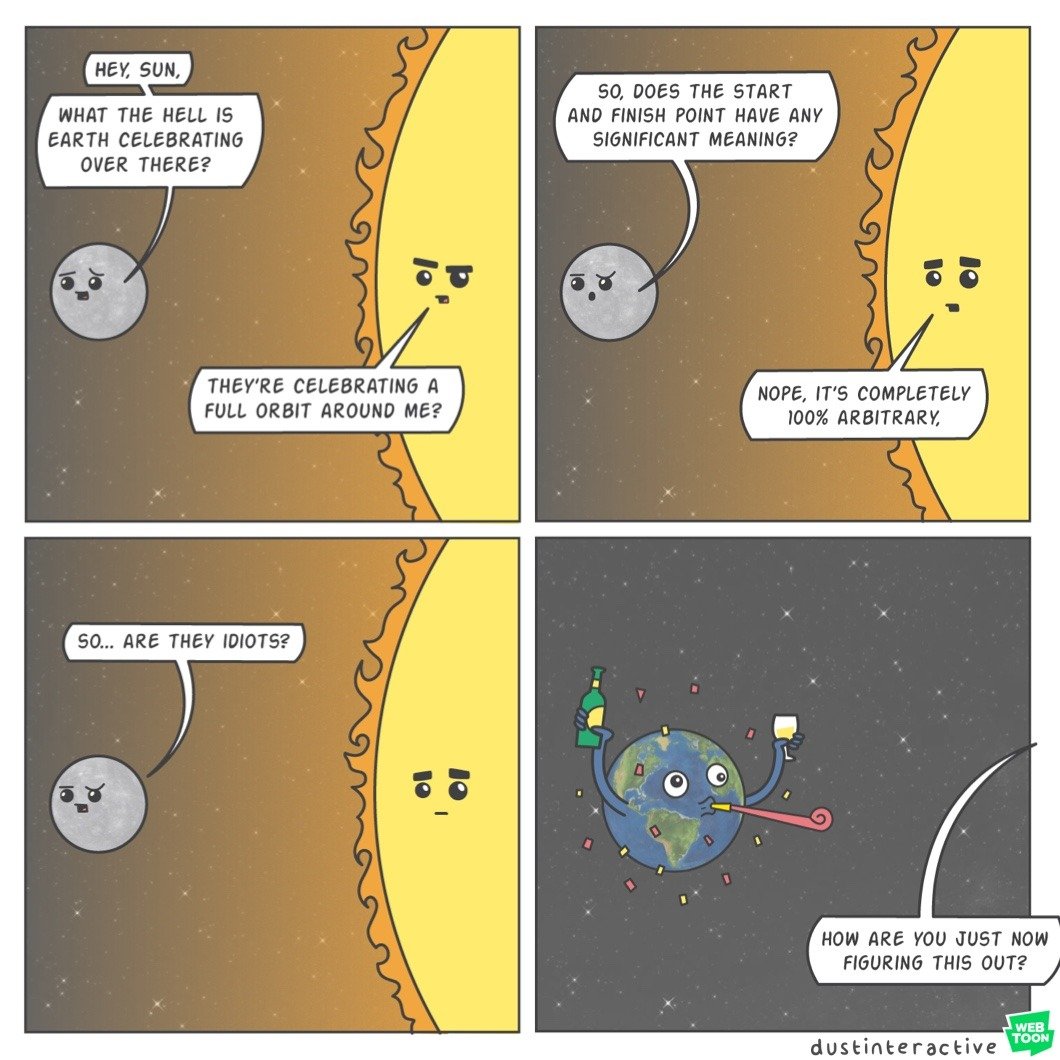this post was submitted on 31 Dec 2024
696 points (93.3% liked)
Comic Strips
14108 readers
2892 users here now
Comic Strips is a community for those who love comic stories.
The rules are simple:
- The post can be a single image, an image gallery, or a link to a specific comic hosted on another site (the author's website, for instance).
- The comic must be a complete story.
- If it is an external link, it must be to a specific story, not to the root of the site.
- You may post comics from others or your own.
- If you are posting a comic of your own, a maximum of one per week is allowed (I know, your comics are great, but this rule helps avoid spam).
- The comic can be in any language, but if it's not in English, OP must include an English translation in the post's 'body' field (note: you don't need to select a specific language when posting a comic).
- Politeness.
- Adult content is not allowed. This community aims to be fun for people of all ages.
Web of links
- [email protected]: "I use Arch btw"
- [email protected]: memes (you don't say!)
founded 2 years ago
MODERATORS
you are viewing a single comment's thread
view the rest of the comments
view the rest of the comments

This is a bit disingenuous; what's considered the "new year" is usually aligned with the seasons and the passing of winter, which is very much not arbitrary and completely dependent on the tilt of Earth's axis.
I think Brazil and Australia would like a word.
You mean the Portuguese and the English, who brought their traditions with them
Summer is a much better time to celebrate anyway. I don't get why Europeans decided to do it in winter.
Anyway, it doesn't stop being an important day... after an arbitrary week-and-half delay.
What else is there to live for in winter if not the celebrations.
It is aligned for the southern hemisphere as well, just with winter and summer reversed.
This is why we need to go back to the roots of what Christmas was co-opted from.
Gimme my winter solstice festival!
Summer Christmas is less magical
The change of year is not aligned with the winter solstice. In fact the new year has been intentionally moved to an arbitrary date to obscure the solstice behind religious holidays.
It's basically a week away from the solstice, still. A little more than a week. It's exactly a week from Christmas Eve, which is what many countries (like where I live) celebrate as "the" Christmas. It's pretty clear still, to me at least, that we celebrate this time because of the sun returning to higher distances above the horizon.
Does January 1st coincide with the ending of winter anywhere?
Ending? Winter just started 10 days ago.
https://en.wikipedia.org/wiki/Winter_solstice
Kind of my point
Ah, well, they moved it ten days away, very hidden and sneaky. Those dastardly fiends.
I hate this idea of winter starting on solstice because I hate winter. I love solstice because it means the horrible darkness is getting better. But I feel like December, January, February is a better representation of winter than January, February, March. March is so much nicer than December.
I've taken to mentally breaking the seasons in half. The winter solstice to halfway before the equinox is cold and dark, but getting brighter. The previous 8th is the hardest time. It's getting darker and colder but snow is sparce. The 8th before the vernal equinox is the final stretch before spring is getting going.
I said "passing", not "end". The end of the year is roughly aligned with mid-winter, a.k.a. the winter solstice, the point at which light and life begin their return.
I figure the solstice would be a far better tradition to bring back. Party twice a year? Peak and summer the low of winter. Sign me up
Uh... it hasn't gone anywhere. Just because you haven't celebrated it, doesn't mean others haven't.
My wife and I do this. Not all of our friends are up for it (some think it's too sacrilegious, but like everything I do is I'm not sure why they haven't got that yet)
Why just solstices? I maintain that secular society would probably enjoy the cardinal (solstices and equinoxes) and ordinal (halfway points) holidays that modern pagans tend to celebrate far better than the Christian ones. They're evenly spaced out and correspond to changes in light and temperature